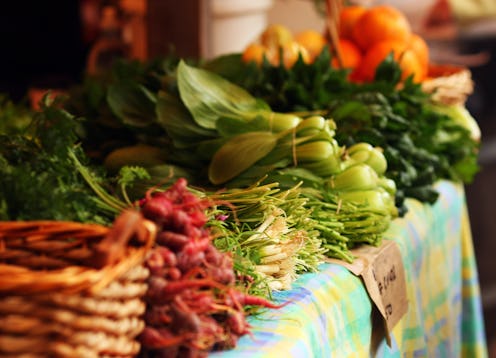Life
How Much Food Is The World Wasting?
Although places like Sam's Club and Costco are awesome, we may want to think twive before our next fridge-filling trip to one of them. True, we can get literally everything there... but before you buy those six dozen eggs, you may want to think about the fact that enough food is wasted annually to feed the world's 800 million hungry, according to G20 ministers.
Agricultural ministers from 20 of the world's most producing countries met in Istanbul this week and came to the agreement that the world needs to up its food security. "One-third of food produced for human consumption is lost or wasted globally, which amounts to about 1.3 billion tons per year," said a statement by the Food and Agricultural Organization of the United Nations. Not only could this food be better allocated to those who need it, but also, the waste is expensive. In 2010, approximately $161 billion of food went uneaten in the U.S.
So who are the biggest food-wasting culprits in the country? Although some of it does happen at the crop and grocery store levels, most of the waste comes from us — the consumers. "Every year, consumers in rich countries waste almost as much food as the entire net food production of sub-Saharan Africa," states the U.N.'s Environment Programme.
And there's even more bad news: Not only is food waste expensive, but it's also bad for the environment. Food is the single largest component of solid waste in U.S. landfills and is a large producer of methane gas, U.S. Agriculture Secretary Tom Vilsack said in an interview with Reuters.
So what can we do as a consumers to reduce our personal food waste? Here are a few suggestions:
1. Know when to throw things away.
The "sell-by" date doesn't always mean "consume by"; food is almost always still good long after its sell-by date has passed.
2. Repurpose leftovers.
Not only will this save money and time, but it can also be fun to experiment with new recipes.
3. Don't buy more than you need.
Do I really need 16 bananas? Yeah, I tell myself if I buy them I'll start eating them for breakfast, but let's be real: The bagels always win.
4. Store things properly.
Efficient storage can eliminate freezer-burn, staleness and help food last longer.
5. Compost!
Home composting is actually pretty easy and the best part is in the end you have fresh, free soil.
Of course, there are a lot of other ways to be food efficient, but the first step is recognizing the problem: "Hello, my name is _____ and I waste food." From here hopefully we can all do a little to be part of the solution.
Images: Kate Ter Haar, Peter Dahlgren, kitty meets goat/Flickr; Giphy; Getty Images (2)
